Iran’s President Starts Tour Of Latin American Allies

Iran’s president Ebrahim Raisi started a tour of Latin America Monday strategically targeting fellow sanctioned nations.

Iran’s president Ebrahim Raisi started a tour of Latin America Monday strategically targeting fellow sanctioned nations.
Raisi is expected to visit Venezuela, Cuba, and Nicaragua - all sanctioned by the United States.
“The common position of Iran and the three countries is to stand against the domination system and confront unilateralism,” claimed Raisi before his trip.
The tour will begin with Raisi's visit to Venezuela, which is a close ally of Tehran receiving oil and other assistance. This is his 13th foreign trip since taking office.
Last year, Venezuelan President Nicolas Maduro visited Tehran and signed a 20-year cooperation plan to take bilateral relations to a new level.
Along with his chief of staff and deputy for political affairs, the president is accompanied by his ministers of foreign affairs, petroleum, defense, and health.
“In addition to friendly political ties with Venezuela, Nicaragua and Cuba, Iran has also had good cooperation with these countries in the field of energy, industry, agriculture, science and technology, and medicine and treatment,” added Raisi.
Last month, a Cuban delegation visited Tehran and signed 13 agreements that included cooperation in biotechnology, healthcare, trade, banking, agriculture, and sports.
The three countries are key political allies for Iran. The United States has accused Iran of circumventing sanctions by exporting crude to countries including Venezuela, while also helping the oil-rich Latin American country to rebuild its energy infrastructure.
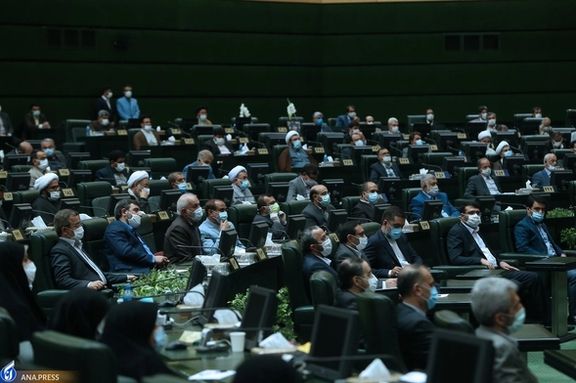
Iranian lawmaker Jalil Rahimi Jahanabadi has sharply complained that the people can no longer tolerate the hardships generated by the current economic crisis.
Jahanabadi told the Iranian Labor News Agency (ILNA) that the ruling faction has created a social and political impasse that has even led to the isolation of some regime insiders, in addition to ostracizing reformists and moderates.
He said as a result of this political impasse, the government has no channels of communication with many social groups, including women and minorities.
Jahanabadi added: "The government has alienated all those who used to run in elections and bring some 80 percent of the population to the polls and win up to 20 million votes," adding that "the insiders who are allowed to run for the parliament can win between 10 to 15 percent of the votes."
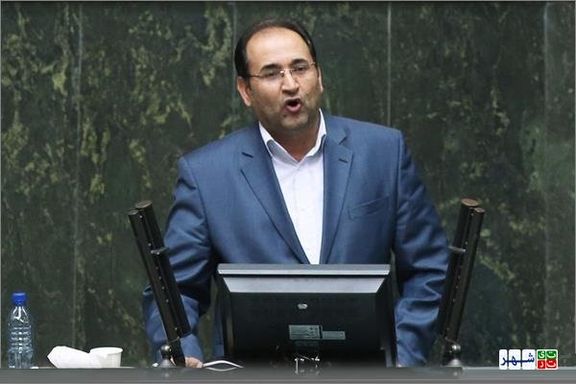
Jahanabadi further called on the government to bring all those who have been alienated back to the political arena through national reconciliation that should also include the release of all political prisoners and prisoners of conscience.
Speaking on the country's dire economic situation, Tehran Mayor Alireza Zakani who is a part of the ruling hardliner faction said that during the two years Ebrahim Raisi has been president home prices have risen by 70 percent in the capital Tehran.
He added that 48 percent of those living in Tehran and 41 percent of Karaj residents near Tehran are tenants. Zakani also said that renting an apartment has become a dream for those who live on regular wages. Buying a home has turned into an impossible dream.
Zakani said that 2.3 million apartments were built in Iran under the government of President Mahmoud Ahmadinejad (2005 – 2013). Nonetheless with an annual inflation rate of 25 percent house prices rose by 4.7-fold. He added that under President Hassan Rouhani with an annual inflation rate of 33 percent, house prices rose by 8.7-fold.
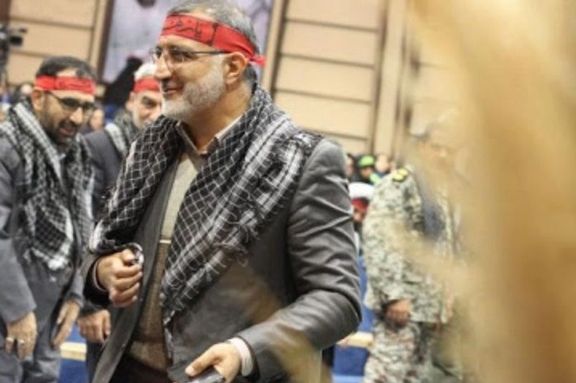
The main reason for inflation in the housing market has been the Iranian currency’s steady decline in the past 44 years since the establishment of the Islamic Republic. In 1978, one US dollar bought 70 rials, while in the past few months the dollar has reached 500,000 rials.
Accordingly, real estate has climbed, not in real terms, but in par with dollar’s rate.
Meanwhile, in an article in Etemad Online, former Government spokesman Ali Rabiei called on politicians in all political factions to support any move by the government that would return Iran to the international community.
He said: "Iran has distanced itself from the world."
Many Iranians, however, believe that it is the international community that has isolated the Islamic Republic for its controversial nuclear program, developing ballistic missiles, destabilizing the region through its proxy groups and financing terrorism abroad.
Meanwhile, Rabiei advised Iran's hardliners to avoid abusing ideology and taking advantage of the people's religious beliefs as these have been the reason for complaints by other countries against Iran.

In another development, centrist politician Gholamhossein Karbaschi pointed out in an interview with Ham Mihan newspaper, which was also carried by Khabar Online website that a big problem in Iran is that "As soon as President Raisi issues an order, others in his government carry out exactly the opposite."
As an example, he said: "When Raisi calls for a reduction in prices, the day after prices begin to rise and this disappoints the people." Karbaschi added: "This will not happen if Raisi questions his men about their decisions when they go wrong." He stressed: "People can trust the government only when they see that officials stand by their promises."
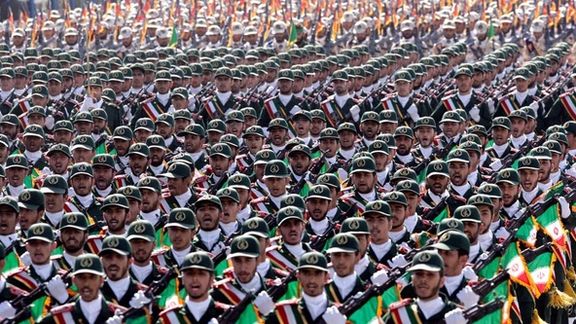
Iran’s exiled prince Reza Pahlavi citing a group of French-Iranian lawyers says there are no legal obstacles for the EU to sanction the Revolutionary Guard.
In a tweet on Sunday, Reza Pahlavi urged the European authorities to reconsider their current position and proscribe the IRGC as a terrorist group, based on a report the lawyers have presented to his office and heads of governments.
“Listing this entity, which is dedicated not to protecting Iran or Iranians but instead the power of the dictatorship, would be a strong and long-awaited recognition of reality and a show of support to my compatriots who are fighting for freedom and democracy in our country.”
Unlike the United States which in 2019 under former President Donald Trump put the IRGC on its Foreign Terrorist Organizations (FTO) list, European countries avoided the designation in the past few years and prioritized diplomacy with the Islamic Republic in the hope of concluding a nuclear deal.
Many politicians in France, Germany, and other European countries have been keen to pursue the IRGC’s designation by the EU and say that it has been long overdue. In January, the European Parliament approved a resolution with absolute majority to designate Iran’s Islamic Revolutionary Guard Corps (IRGC) as a terrorist organization. However, the EU refused to do so, with its Foreign Policy Chief Josep Borrell saying the move needs a ruling by a European court.
The document cited by Pahlavi refers to the Common Position adopted by the EU following the 9/11 attack, saying that the same definitions used to describe persons, groups and entities involved in that terrorist acts apply for the IRGC.
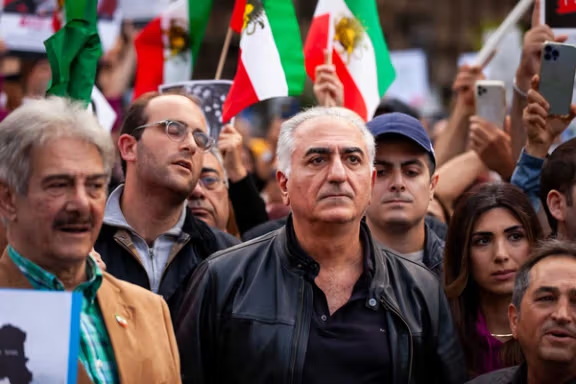
The legal report says a "terrorist act" shall mean any intentional act that may seriously damage a country or an international organization, seriously intimidating a population, or unduly compelling a government and seriously destabilizing or destroying the fundamental political, constitutional, economic or social structures of a country.
Having stated the statutes that provide the legal basis for listing an entity on the European list of terrorist organizations, the group of lawyers went on to provide examples of such acts by the IRGC to prove that the entity deserves to be designated, like all the other groups that the EU has blacklisted.
“The study of the IRGC confirms that it constitutes a structured organization which has carried out terrorist attacks and which has been the subject of decisions by competent authorities which the Council of the European Union could take into account in order to proceed with its inclusion on the European list of terrorist organizations,” read part of the document.
A noteworthy point in the document is the often-ignored duty of the IRGC according to the Islamic Republic’s Constitution: Exporting the revolution.
“The Constitution distinguishes the mission assigned to the IRGC to continue the Islamic Revolution, considering ultimately that the fall of the regime of the Shah of Iran and the establishment of the regime of the Islamic Republic do not constitute the end of the Islamic Revolution,” it reads, arguing that IRGC's mission to pursue the Islamic Revolution ideologically, beyond the borders of Iran may be among the main reasons behind its extra-territorial destabilizing activities.
Among the reasons that legally justifies the designation of the outfit, the document points out that the IRGC has planned and executed numerous operations aimed at assassinating Iranian opposition figures. “It also carried out attacks against foreign personalities and institutions that the Islamic Republic considered at the time as enemies or contrary to its interests,” added the document.
The documents also provided a long list of assassinations and terrorist acts tracing back to the IRGC as the cases that the EU can use to proscribe the group.
The cases include the assassination of Shapour Bakhtiar, the last prime minister of the Shah in 1991; assassination of Shahriar Shafiq, the nephew of the Shah of Iran, in 1979; the kidnapping of David Stuart Dodge, the president of the American University of Beirut, in 1982; attacks on the US Embassy and US Marines in Beirut in 1983; wave of attacks in Paris, 1985 and 1986; the Mykonos restaurant assassinations in 1992; and attack on AMIA in Argentina in 1994; as well as recent plots, such as the attempted assassination of John Bolton in 2022 and attempted assassination of opposition figure Masih Alinejad.
A presupposition prevailing throughout the text is that the European Union seeks to designate the IRGC and only lacks the proper legal bases, as proclaimed by Borrell. However, it seems that the reluctance to blacklist the IRGC is based on political reasons.
Talks in Vienna to revive the 2015 JCPOA nuclear deal came to an abrupt stop in 2022, reportedly for Iran’s insistence that the IRGC be removed from the US FTO list.
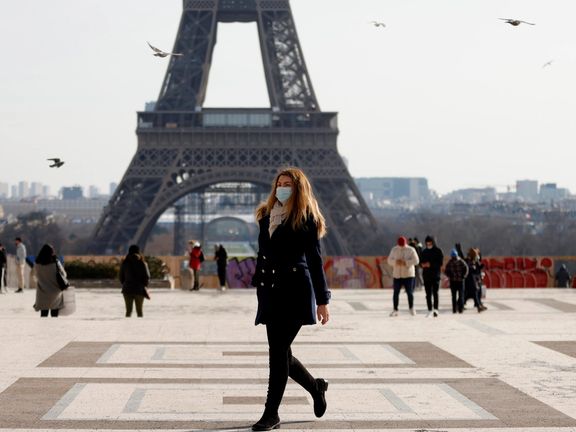
The Albania-based opposition group Mojahedin-e-Khalq (MEK) has accused the Islamic Republic of a terror attack on its building north of Paris.
In a statement the group claimed a building belonging to its supporters in the city of Saint-Ouen-l'Aumône was attacked by “terrorists and mercenaries of the IRGC Quds Force and the ministry of intelligence” who were speaking Farsi.
“Two terrorists threw incendiary devices towards the entrance of the building, but as soon as they were chased by the residents, they quickly fled the area in a car that was ready on the street,” read the statement.
The MEK further added that the fire at the entrance was extinguished quickly, and no one was injured, but police started investigations.
Earlier on May 31, the same place was targeted by six bullets, but no one was hit, according to the statement.
The group added that the recent release of Asadollah Asadi, an Iranian agent disguised as a diplomat in Europe who was convicted in a Belgian court for a terror plot in France in 2018, has made the regime more “audacious” to stage terrorist acts.
It also called on the French government, police, and judiciary to arrest the perpetrators of such criminal acts of terrorism and prosecute them and publish all the details to inform the public opinion.
A week ago, Olivier Vandecasteele, a Belgian aid worker detained in Iran, returned to his country in exchange for the release of Assadollah Asadi.
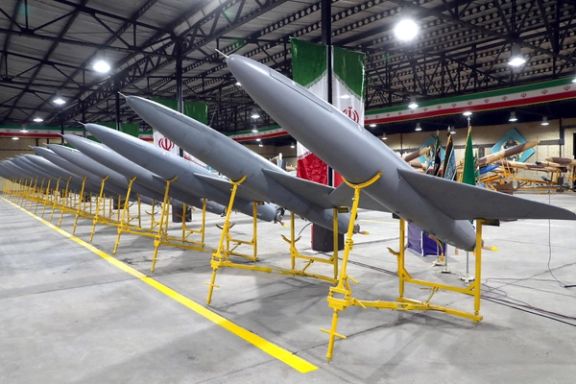
Twenty Iran-made drones attacked Ukraine Saturday night killing at least three people and causing massive destruction.
Reports on social media say the victims were a woman from Kherson and a married couple from Bakhmut who had fled from their homes hoping to find safety in Odessa.
Meanwhile, the Ukrainian Air Force announced that Iranian-made drones are still a “headache” for Ukraine.
“Iranian-made Shahed kamikaze drones largely used by Russia are still difficult to shoot down,” Air Force spokesperson Yurii Ihnat said in an interview with Ukrainska Pravda on Sunday.
Since last October, Moscow, which launched its full-scale invasion in February last year, has regularly sent waves of Iranian drones to attack targets in Ukraine. Although they are slow, drones are cheaper and more expendable than advanced missiles.
Some experts say that Russia's use of the Shahed drones, costing around $20,000 each, either is meant to confuse Ukrainian air defenses during missile attacks, or to force Kyiv to spend its expensive Western-supplied anti-air missiles.
Iran has denied sending armed drones to Russia after Moscow launched its invasion in February 2022, claiming that any shipments occurred before the war.
However, Russia has used hundreds of Iranian-made drones to attack Ukrainian infrastructure and civilian targets, with Kyiv reporting more supplies in December as Moscow’s stocks were used up.
Western powers have strongly objected to Iran's decision to arm Russia with the Kamikaze drones, and possibly other weapons and ammunition.
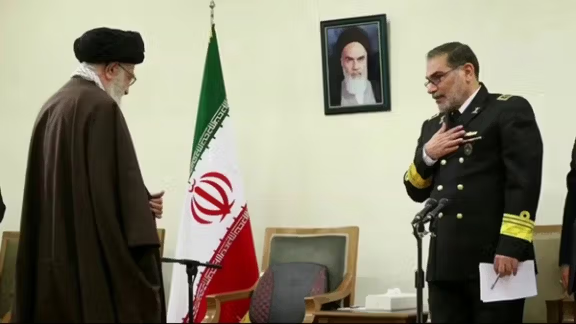
Iran International has obtained information about links between Iran's former security chief Ali Shamkhani and a top drug lord, Naji Sharifi-Zindashti.
According to an Iran International source, Shamkhani was receiving about $3.5 million in bribes per year from Zindashti, in addition to the narcotics that the drug baron personally provided for the secretary of Islamic Republic’s Supreme National Security Council.
Shamkhani’s dealings with Zindashti were among the reasons why a man representing Supreme Leader Ali Khamenei in the security council was pushed out of his position in May.
Sharifi-Zindashti and his accomplices – dubbed “The Friends’ Club” – have used the IRGC’s vast reach and control over transit routes and logistics to gain the upper hand in Iran's drug market, the source said.
The Club is comprised of senior IRGC officials and high-ranking members of Iran’s Supreme National Security Council as well as managers from Tehran Municipality and members of parliament.
Shamkhani, who was a senior member of the "Friends’ Club” was forced out of office, but the drug distribution network is still operating, reportedly trafficking more than 20 percent of narcotics distributed across Iran and about 35 percent of the drugs pushed in the capital Tehran.
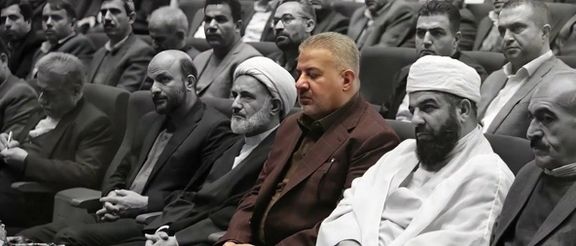
Shamkhani's résumé is so full of controversies that it is difficult to pinpoint a single reason for his removal after about a decade at the post.
In recent months there were rumors about Shamkhani stepping aside as hardliners blamed him for failure to suppress protests. In video-taped remarks released on the internet in November, former lawmaker Hamid Rasaei, a hardliner cleric, accused him of failing to quash protests.
The conjecture was further confirmed after the hacktivist group ‘Uprising till Overthrow -- affiliated with the Albania-based opposition Mojahedin-e-Khalq (MEK) group – hacked into 120 servers at the presidential office, getting access to internal communications, minutes of meetings, President Ebrahims Raisi’s online conference platforms and about 1,300 computers inside the office.
Among the released documents, there is correspondence between the president’s office and the office of Shamkhani, confirming rumors that he stepped down over conflicts with the Raisi administration.
In the letter addressed to Shamkhani, the chief of staff of the president, Gholam-Hossein Esmaili, criticized the security chief for a lack of insight into the wave of protests that engulfed Iran following the death in custody of 22-year-old Mahsa Amini. With a condescending tone, Esmaili rebuked Shamkhani’s office for “merely describing and analyzing the events,” asking him to provide “meta-analyses and predictions” about the developments regarding the protests.
Shamkhani also had a fair share of scandals, like most regime insiders, pertaining to his abuse of power for financial gain and nepotism, including reports about his sons -- Hassan and Hossein -- owning dozens of businesses, such as large shipping companies.
There are also reports about the extravagant lifestyle of his family members in Iran and abroad. Following “rumors” that even his toddler grandson has hundreds of thousands of dollars in just one bank account as well as several properties, authorities announced that the bank account was blocked. Iran International’s investigative journalist Mojtaba Pourmohsen has published several exposés about the corruption of kith and kin, including his nephews Mo’ud and Naji Shamkhani.
Several pundits, such as commentator Morteza Kazemian, are also of the opinion that Shamkhani’s removal may be linked to the case of British-Iranian national Alireza Akbari, a former Iranian deputy defense minister who was executed over charges of spying for Britain. Akbari was a close ally of Shamkhani, and his execution was also interpreted as a move aimed at weakening Shamkhani’s position in the regime.